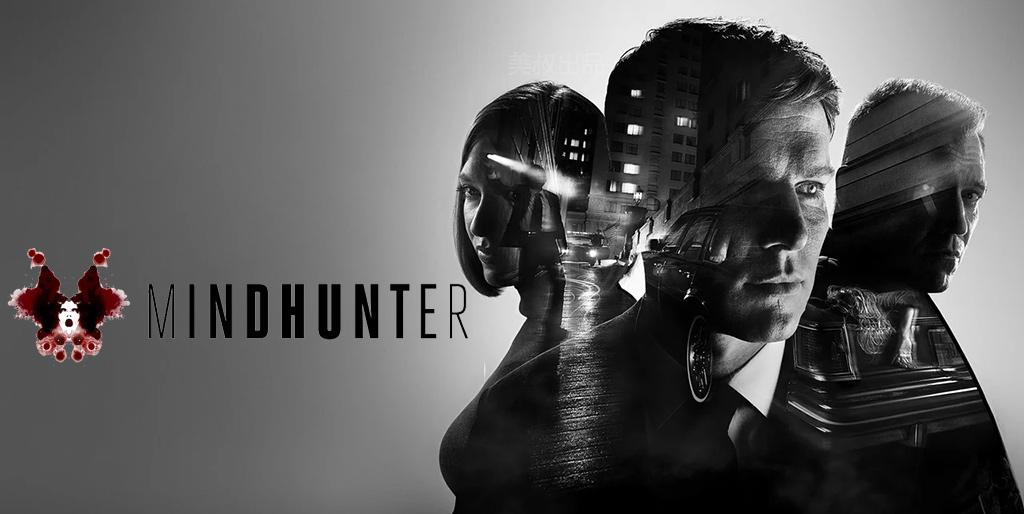
Psychic Detective poster
In the American drama "Hannibal", the protagonist Will uses the technique of scene restoration and projection of the murderer's psychology, which always makes people admire the precise motive restoration, is there such a magical ability in real life? The latest original American drama, Mindhunter, based on a true story, will take us back to the FBI's creation of the method of inmate dissection, all from a detective john douglas who studies behavioral science.
Edmund Kemper in real life
His name may not be as loud as That of Will Graham or Hannibal Lecter, but many of the serial killer cases he solves have become inspiration for the classic characters in Hannibal's story. Edmund Kemper, the first felon John interviewed in a high-security prison, became the prototype for the serial killer Hannibal by Hannibal's author Thomas Harris—extremely intelligent, calm, contemptuous of society, and guilty of crimes for interest and desire.
Stills from "Psycho Detective"
Growing up in a broken family where his parents divorced, Edmund and his sister as a child became fascinated by the mystery of the death ritual and vented his mother's anger at his abuse on the critters. As he grew older, he became more and more disconnected from society, his sense of withdrawal grew, and the resentment accumulated by domestic violence reached its limit, Edmund began to kill young female college students in small towns to satisfy his pain of not being able to obtain female love and to fight back against his mother's tyrannical behavior. What excites Edmund the most is that when he drives to the psychotherapist in the car carrying the victim's body in the back compartment, he proves that he is mentally normal in front of the therapist without changing his face, while enjoying the thrill of no one discovering his crime, laughing at the incompetence of the system, laughing at the fools who think they are smart enough to understand his complex psychology.
John Douglas in Psycho (right)
Is Edmund's behavior very familiar? The ogre Hannibal also witnessed the tragedy of his sister being eaten in the war during his childhood, and has since used "cannibalism" as a means of rebellion against society. If the truth of war is "the weak eat the strong," then what does it matter if he eats humans who are dumber and less useful than him? Hannibal, like Edmund, enjoyed the thrill of continuing to commit crimes while dealing with those in power, but Hannibal went to the next level, directly becoming friends with those involved in investigating his crimes, and further manipulating their psychological behavior. Edmund ended up turning himself in and being arrested because he was frustrated that his homicide hadn't made national headlines and voluntarily surrendered to the police to gain attention. One of the roots of this behavior is that serial killers have dehumanized the lives of others, and the process of killing people is an achievement, and this achievement must be admired by other mortals to have the value of completion, so Hannibal will make the dead into works of art again and again, or make delicious dishes for those FBI agents to enjoy.
Edmund's case subverts the original imagination of serial murderers, most of whom are well aware of what they are doing, and everything is carefully planned, including how to pretend to be innocent after being arrested. After collecting more and more in-depth interview cases, John gradually became able to imagine the prisoner's state of mind, and sometimes even completely persuaded by their motives, and it became more and more difficult to distinguish between the ordinary man and the extraordinary person, to catch the demon, only to make himself a demon, which is why Will became Hannibal's close friend step by step in Hannibal's story.
"Psycho" director David Finch
Netflix's American version is based on the 1996 memoir series of the same name, directed by David Fincher, who specializes in suspenseful thrillers, and before that, he has had two wonderful murderous films," se7en and zodiac, making people very much looking forward to how this time will be adapted. The shocking horror ending of The Seven Deadly Sins is still a classic in crime movies, and Kevin Spacey's collaboration with David Finch in House of Cards continues the mysterious charm of a highly intelligent criminal.
From right: Jonathan Grove, Anna Tove, Holt McCarrany
According to the information currently revealed, the two actors who play the main role are Jonathan Groff and Holt Mccallany, and Jonathan Grove's previous starring series are mainly comedies, such as "Glee" and "Looking" and other dramas, and the mature role of this performance will be a major change and challenge. Veteran actor Hult McCarrany is a regular supporting cast in many films, always playing the calm veteran or boss genre, appearing in films such as "sully," "jack reacher: never go back," and "gangster squad," and his experience with David Finch can be traced back to another classic, "Fight Club."
(End)